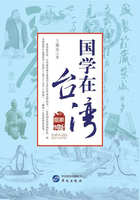On reverting to Bentham, we find this counter-proposition overtly expressed. He tells us that government fulfils its office "by creating rights which it confers upon individuals: rights of personal security; rights of protection for honour; rights of property;" etc.(6*) Were this doctrine asserted as following from the divine right of kings, there would be nothing in it manifestly incongruous. Did it come to us from ancient Peru, where the Ynca "was the source from which evening flowed";(7*) or from Shoa (Abyssinia), where "of their persons and worldly substance he [the king] is absolute master";(8*) or from Dahome, where "all men are slaves to the king";(9*) it would be consistent enough. But Bentham, far from being an absolutist like Hobbes, wrote in the interests of popular rule. In his Constitutional Code(10*) he fixes the sovereignty in the whole people; arguing that it is best "to give the sovereign power to the largest possible portion of those whose greatest happiness is the proper and chosen object," because "this proportion is more apt than any other that can be proposed" for achievement of that object.
Mark, now, what happens when we put these two doctrines together. The sovereign people jointly appoint representatives, and so create a government; the government thus created, creates rights; and then, having created rights, it confers them on the separate members of the sovereign people by which it was itself created. Here is a marvellous piece of political legerdemain! Mr Matthew Arnold, contending, in the article above quoted, that "property is the creation of law," tells us to beware of the "metaphysical phantom of property in itself." Surely, among metaphysical phantoms the most shadowy is this which supposes a thing to be obtained by creating an agent, which creates the thing, and then confers the thing on its own creator.!
From whatever point of view we consider it, Bentham's proposition proves to be unthinkable. Government, he says, fulfils its office "by creating rights." Two meanings may be given to the word "creating." It may be supposed to mean the production of something out of nothing; or it may be supposed to mean the giving form and structure to something which already exists. There are many who think that the production of something out of nothing cannot be conceived as effected even by omnipotence; and probably none will assert that the production of something out of nothing is within the competence of a human government. The alternative conception is that a human government creates only in the sense that it shapes something pre-existing.
In that case, the question arises -- "What is the something pre-existing which it shapes?" Clearly the word "creating" begs the whole question -- passes off an illusion on the unwary reader. Bentham was a stickler for definiteness of expression, and in his Book of Fallacies has a chapter on "Impostor-terms."It is curious that he should have furnished so striking an illustration of the perverted belief which an impostor-term may generate.
But now let us overlook these various impossibilities of thought, and seek the most defensible interpretation of Bentham's view.
It may be said that the totality of all powers and rights, originally existed as an undivided whole in the sovereign people;and that this undivided whole is given in trust (as Austin would say) to a ruling power, appointed by the sovereign people, for the purpose of distribution. If, as we have seen, the proposition that rights are created is simply a figure of speech; then the only intelligible construction of Bentham's view is that a multitude of individuals, who severally wish to satisfy their desires, and have, as an aggregate, possession of all the sources of satisfaction, as well as power over all individual actions, appoint a government, which declares the ways in which, and the conditions under which, individual actions may be carried on and the satisfactions obtained. Let us observe the implications. Each man exists in two capacities. In his private capacity he is subject to the government. In his public capacity he is one of the sovereign people who appoint the government. That is to say, in his private capacity he is one of those to whom rights are given; and in his public capacity he is one of those who, through the government they appoint, give the rights. Turn this abstract statement into a concrete statement, and see what it means. Let the community consist of a million men, who, by the hypothesis, are not only joint possessors of the inhabited region, but joint possessors of all liberties of action and appropriation: the only right recognized being that of the aggregate to everything. What follows? Each person, while not owning any product of his own labour, has, as a unit in the sovereign body, a millionth part of the ownership of the products of all others' labour. This is an unavoidable implication. As the government, in Bentham's view, is but an agent; the rights it confers are rights given to it in trust by the sovereign people. If so, such rights must be possessed en bloc by the sovereign people before the government, in fulfilment of its trust, confers them on individuals; and, if so, each individual has a millionth portion of these rights in his public capacity, while he has no rights in his private capacity. These he gets only when all the rest of the million join to endow him with them; while he joins to endow with them every other member of the million!
Thus, in whatever way we interpret it, Bentham's proposition leaves us in a plexus of absurdities.















